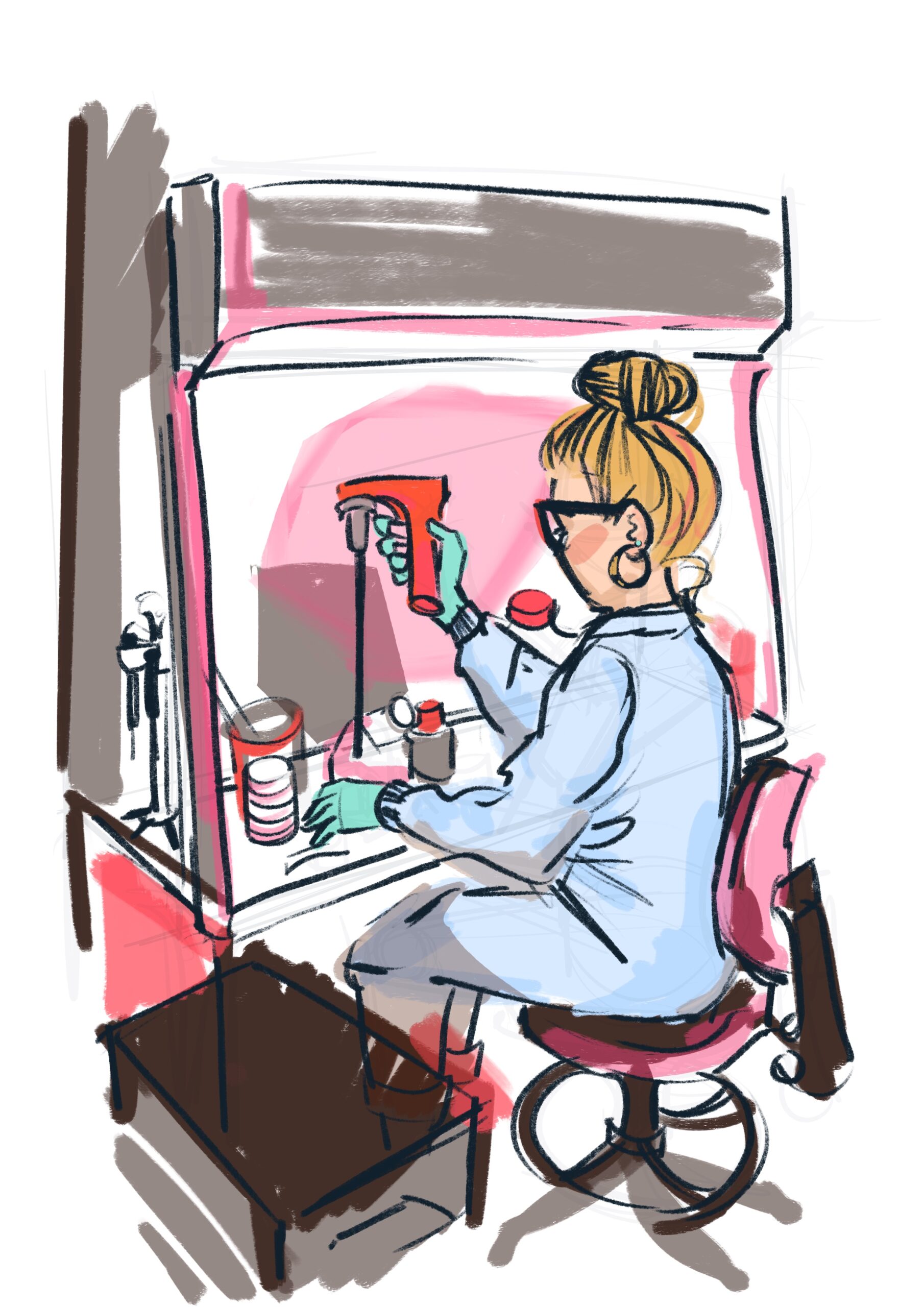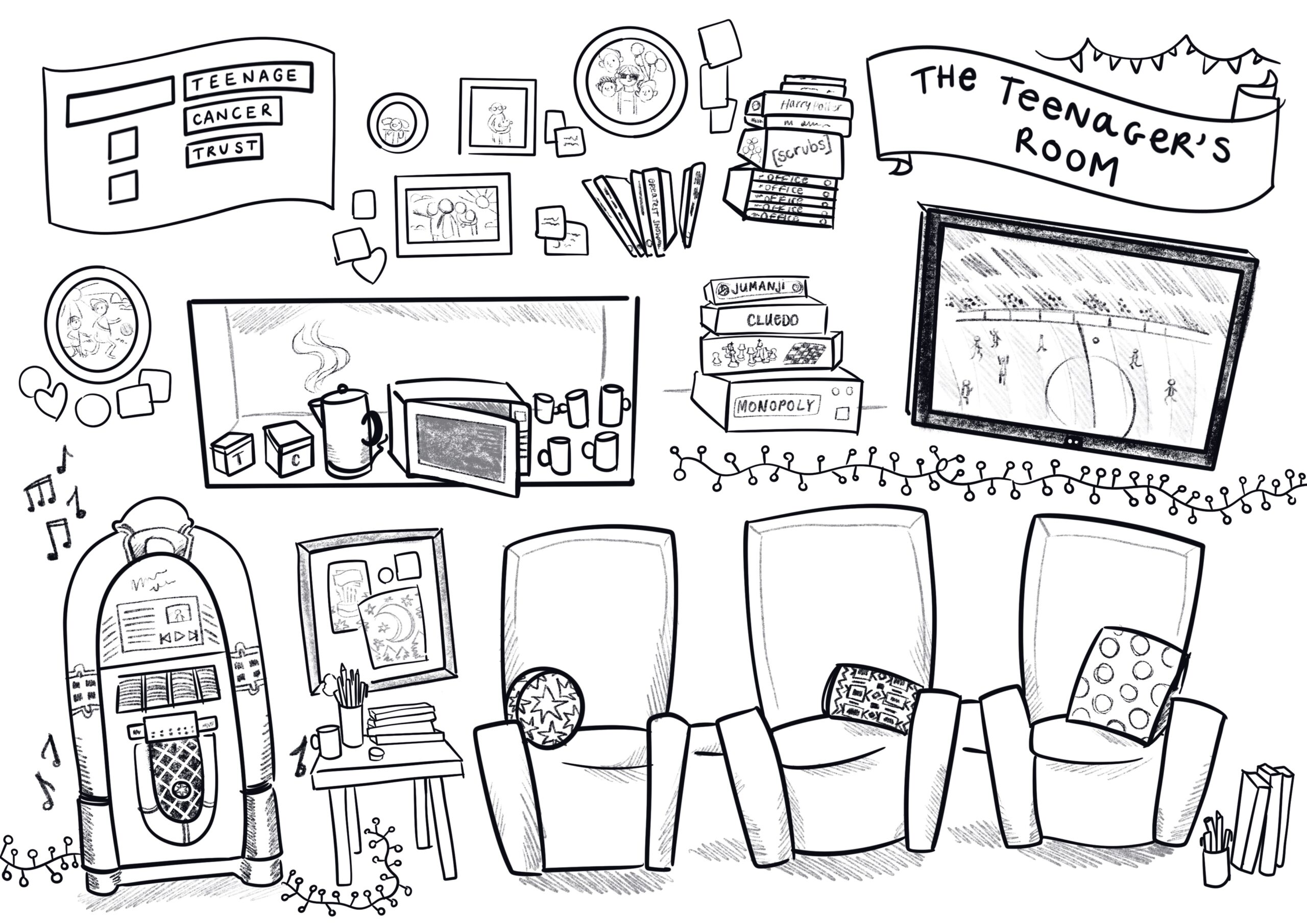Bridging cancer research and art

Grace Forsyth is a trailblazing PhD student dedicated to improving fertility preservation options for childhood cancer patients while making science more accessible through innovative public engagement projects. Her work integrates reproductive biology, artistic collaboration, and a deep commitment to engaging communities in conversations about cancer. the development of her unique colouring book project aimed at children with cancer.

A passion for reproductive biology and public engagement
Grace’s journey into reproductive biology began during her undergraduate studies at the University of Edinburgh, where she graduated in 2020. She further honed her skills with a master’s degree in London before returning to Edinburgh to embark . Her research focuses on fertility preservation for male childhood cancer patients, a pressing issue as current chemotherapy treatments often compromise fertility.
To address this challenge, Grace is exploring protective drugs that could be administered alongside chemotherapy to safeguard fertility in situ, avoiding invasive procedures or reliance on future technological advancements.
PhD programme also incorporates a unique public engagement and science communication component, where students learn to translate complex scientific concepts for broader audiences. This training inspired Grace’s commitment to making her research more accessible.

Bridging science and art: The Colouring Book Initiative
Grace’s enthusiasm for creative expression led to the inception of her colouring book project, designed to resonate with children on cancer wards. “I was always interested in mixing science and art for education and how art could be used to demystify science for the public,” she said. Reflecting on the accessibility of science compared to art, Grace observed: “People feel that they can’t access science—it’s all behind closed doors—whereas you can just walk into an art museum.”
Collaborating with artist Alice Haskell, Grace envisioned a co-produced colouring book that would reflect the experiences of children with cancer. The project’s content is informed by a survey targeting parents, adult survivors of childhood cancer, and medical professionals.
“We’re asking about their hospital experiences, understanding of treatment, and a bit about fertility preservation,” she said. This input ensures the book is both engaging and relevant to its audience, children aged 6–11.
Workshops and co-creation
To further refine the colouring book’s content, Grace and Alice are conducting workshops with adult survivors of childhood cancer. These sessions include activities like visual journaling and comic strip drawing, designed to encourage participants to reflect on their experiences.
“The workshops will help us create something that really suits the audience,” Grace emphasised. The involvement of medical professionals, such as consultants and play specialists, also enriches the project, ensuring it aligns with the therapeutic needs of its target demographic.

The importance of funding
Grace’s work is supported by an alumni-funded Student Experience Grant, essential for covering the costs of public engagement initiatives. She candidly acknowledged the financial challenges of such projects: “People don’t realise how expensive public engagement stuff is to do. I wouldn’t have been able to do the project without the grant.”
The grant funds Alice Haskell’s artistic contributions and the workshops, which are vital for the colouring book’s development. “The colouring book itself costs around £4,000, and the workshops are about £1,300,” Grace noted.

Looking ahead
With her PhD set to conclude in 2025, Grace is in the final stages of both her research and the colouring book project. She hopes the book will be ready for publication early in the new year. Beyond this, Grace remains deeply committed to combining scientific inquiry with community engagement. Her work exemplifies how creativity and empathy can transform complex scientific challenges into tangible, impactful initiatives. As Grace succinctly put it: “I wanted to make sure the content was reflective of their experiences.”
As Grace’s colouring book project nears completion, it promises to leave a lasting impact on children and families navigating the challenges of cancer treatment, highlighting the importance of continued support for such transformative initiatives.
Student Experience Grants
Supported by alumni and friends, these grants offer one-off contributions of up to £5,000 to support innovative projects that will enhance students’ social, academic, entrepreneurial, sporting or cultural development. Student Experience Grants help students develop as innovators and can be the launching point for exciting projects with real-world impact.

